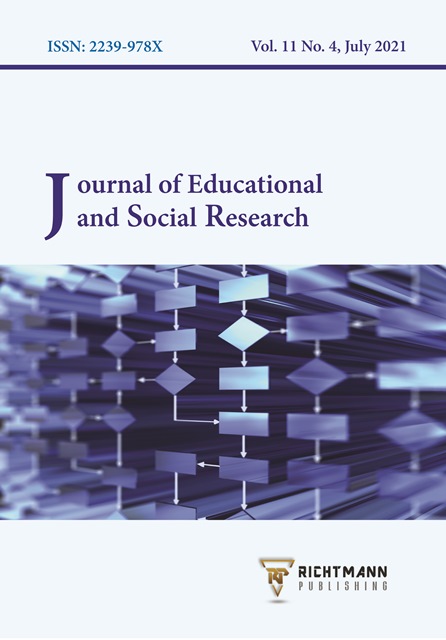The Effect of Using Active Class Strategy through Educational Games on the Achievement of 7th Grade Students in English Language at Public Schools in Wadi Al-Sir Directorate, Jordan
DOI:
https://doi.org/10.36941/jesr-2021-0095Keywords:
Active Class Strategy, Educational Games, Seventh Grade, Public Schools, Students’ AchievementAbstract
This study aimed to investigate the effect of using active learning through educational games on academic achievement and retention in the English language subject among seventh-grade students in government schools in Wadi Al-Sir Directorate/Jordan. The study tool (achievement test) was prepared, and six appropriate educational games were designed to teach the educational content. To ensure the validity of the tool, the test was presented to five referees from teachers and educational supervisors in the Wadi Al-Sir Directorate of Education. The researchers also calculated the reliability of the test, and its value was (0.89), which is a good value that meets the purposes of the study, and the difficulty factor and the discrimination coefficient were calculated for each item of the test. The study population consisted of students of the seventh grade in public schools in Wadi Al-Sir directorate of education, and the study sample consisted of (120) students, who were divided into two groups, a control group, and an experimental group, where the experimental group studied using active learning strategy through educational games, while the control group studied using the traditional method, the application took two weeks. The results of the study showed the following: - There were statistically significant differences at the level of significance ((? = 0.05)) between the levels in the measurements: pre, post, and retention for the experimental group. - The presence of statistically significant differences at the level of significance () between levels (remembering, application, synthesis, and total score) in the measurements: pre-, post-, and retention for the control group. - There are no statistically significant differences at the level of significance () in the levels of memory and comprehension in the posttest between the control and experimental group, while there are statistically significant differences in the levels of application, analysis, synthesis, and posttest in favor of the experimental group. - There are no statistically significant differences at the level of significance () in the levels of remembering, comprehension, application, and the measure of retention between the control and experimental group, while there are statistically significant differences in the levels of analysis and synthesis, in measuring retention and in favor of the experimental group. The researchers recommended the necessity of using the strategy of active learning through educational games in teaching other subjects, and for the rest of the classes.
Received: 9 February 2021 / Accepted: 26 May 2021 / Published: 8 July 2021
Downloads
Downloads
Published
Issue
Section
License

This work is licensed under a Creative Commons Attribution-NonCommercial 4.0 International License.
This work is licensed under a Creative Commons Attribution-NonCommercial 4.0 International License.









